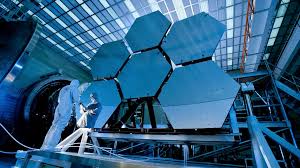Source: geospatialworld.net
Artificial intelligence (AI) is a hot topic at the moment, and with good reason. The technology is coming along in leaps and bounds, powered by a combination of factors including the rise of cheaper (and more powerful) processors and cloud computing availability. AI has gone from being a niche interest for computer geeks to serious big business and a major technological change driver. For example, in healthcare, it’s playing a key role in the development of vaccination programs and treatments for coronavirus. In the automotive industry, it’s powering self-driving cars, potentially saving hundreds of thousands of lives. So, you can see how AI could be important to talk about. Today we’ll be focusing on smart construction using Artificial Intelligence after taking a look at what AI is and how it works.
How AI Works
The idea behind AI is pretty simple: it’s an attempt to use computer software and hardware to simulate the human mind’s thought processes. It’s an ambitious, lofty goal, but it’s also one that we’re closer to achieving than ever before.
AI functions by essentially making predictions based on data, and it’s able to make these predictions because it can parse through data and draw its conclusions upon it much like a human would, but at a faster speed.
Let’s take self-driving cars, for example. The way that they work is essentially by analyzing the huge amounts of data that human drivers create and then making a prediction on what a competent human driver would do in any given situation. Paradoxically, this can also make them better than the human drivers that they learn from. A human driver learns from their own mistakes, but an AI driver learns from everyone’s mistakes.
That means it’s unfair to compare humans with AI or to suggest that any one of them is better than the other. Most studies have found that the ideal combination is humans and machines working together.
AI in Construction
But what has this got to do with construction? Quite a lot, as it turns out. AI can be used at pretty much every touchpoint across the construction progress, whether it’s crunching the numbers to identify the most efficient use of floor space during the design process or whether it’s being used to manage the supply chain and to drive efficiencies during the order process.
The top AI companies are flocking to the construction industry because they know they have so much to offer. And we’re not just talking about something that’s nice in theory but that we’ll never see in practice. There are real-world, immediate applications for artificial intelligence in almost every industry under the sun, and AI is no exception.
Take planning and forecasting. Artificial intelligence is behind powerful simulation software and prediction algorithms, and those can be used to make more educated estimates about company performance. Your quotations can be more accurate, based on data instead of being based on guesswork, and they can also be updated in real-time.
The Future of Smart Construction
But the real potential of AI comes in when we think of it not as enabling individual use cases but rather as an overall major shift in how our society works. In the future, AI will power entire cities, automatically routing traffic so that it reduces congestion and minimizes the potential for injuries and accidents.
And AI will become a fundamental part of the construction, too, even if the average construction worker doesn’t know it. That’s because it can sit under the bonnet of different tools and interfaces, silently powering a new generation of software. It will make us more efficient and better builders, and companies that don’t get on board will get left behind.
The future of smart construction and the future of construction are the same because the two go hand in hand. That means that we have an opportunity to future-proof ourselves by embracing AI today and putting it to use at our businesses. What’s not to like?
Conclusion
We’re still in the early days when it comes to artificial intelligence. So, while the technology is already showing some promise, it’s still a long way off reaching its full potential. That makes it a technology to watch in the construction industry. Early movers will establish the course of the industry and benefit both in the short and long term.
